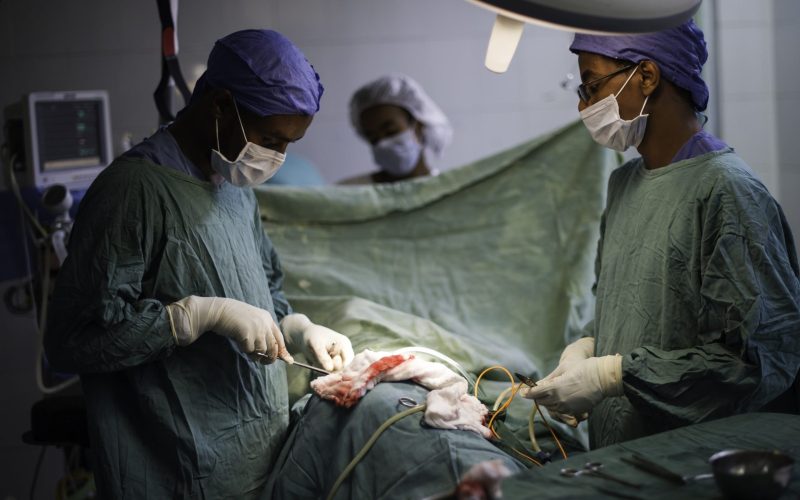The CLEAN-CS (Clean Cut for Cesarean Section) trial has demonstrated significant improvements in compliance with surgical standards and a reduction in maternal and perinatal mortality following cesarean sections in Ethiopia, according to a study published in JAMA Network Open.
Conducted across nine hospitals in Ethiopia, the CLEAN-CS trial involved 9,755 women undergoing cesarean sections.
The trial aimed to enhance perioperative care through a quality improvement intervention developed by Lifebox, focusing on reducing complications associated with cesarean deliveries in low-resource settings.
This initiative was funded by a Bill and Melinda Gates Foundation Grand Challenge Grant, with additional support from the UBS Optimus Foundation.
The intervention, known as Clean Cut, targets six critical perioperative infection prevention standards: proper skin preparation, maintaining sterility, confirming instrument sterility, administering antibiotics appropriately, ensuring complete swab counts, and using the WHO Surgical Safety Checklist effectively.
After implementing Clean Cut, compliance with these standards improved significantly, increasing from an average of 4.2 to 5.2 out of 6.
While the trial did not find a statistically significant reduction in surgical site infections (SSIs), it did observe a marked decrease in the combined outcome of SSIs, maternal mortality, and perinatal mortality.
Maternal mortality dropped from 0.65% to 0.27%, and perinatal mortality decreased from 5.68% to 3.03%.
“This study highlights the impact of Clean Cut in improving surgical compliance and reducing complications across various healthcare settings,” said Dr. Tihitena Negussie, Global Clinical Director of Lifebox and co-senior author.
“The reductions in maternal and perinatal mortality are promising and demonstrate the potential of improved perioperative processes to enhance patient outcomes.”
Globally, over 22 million cesarean sections are performed annually, with many occurring in low-resource settings.
These procedures, though lifesaving, carry significant risks of infections and complications, contributing to high rates of maternal and neonatal mortality.
The Clean Cut program, designed specifically for such environments, addresses these challenges through a comprehensive quality improvement approach tailored to the unique needs and constraints of these regions.
“Data-driven, locally tailored interventions are crucial for successful quality improvement,” said Prof. Thomas Weiser, co-senior author.
“By enabling local teams to identify and address process gaps, we can achieve significant improvements in surgical safety and make a meaningful difference in maternal and neonatal health outcomes.”
The success of the CLEAN-CS trial underscores the importance of expanding the Clean Cut program to additional hospitals in other low-resource settings.
The trial was a collaborative effort between Lifebox, Addis Ababa University, Stanford University, Boston Medical Center, the Ethiopian Society of Obstetricians and Gynecologists, and various Ethiopian healthcare institutions.
Additional support was provided by the Fogarty International Center of the National Institutes of Health.
Lifebox, a global nonprofit founded in 2011 by Dr. Atul Gawande, is dedicated to making surgery and anesthesia safer worldwide.
Through tools, training, and partnerships, Lifebox addresses critical gaps in surgical systems, focusing on anesthesia safety, surgical teamwork, and reducing surgical infections.
To date, Lifebox has worked in 116 countries and trained more than 13,000 healthcare providers, contributing to safer surgeries for 248 million patients.
